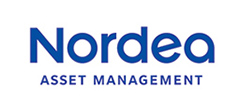
By Laurent Gorgemans, Global Head of Investment Management at Nordea Asset Management
As European corporate bonds display yields not witnessed for many years, investors are casting a renewed eye on the region’s credit market. But while all segments of European corporate debt offer attractive yield levels relative to the past decade or more, investors must avoid complacency in the face of continued challenges.
High yield is understandably a primary area of focus for investors today, as yields on sub-investment grade credit remain elevated following the significant spike during 2022—EU HY has seen yields are sitting between 7-8% as of end Sept 2023.[1] However, many of the lower-quality credits within this universe remain vulnerable to downside pressure, particularly considering ongoing economic uncertainties.
At the opposite end of the spectrum, yields for many of the highest-quality names within the investment grade space are unlikely to deliver a significant real return over still-elevated inflation. In fact, EU IG yields of presenting around 4-5%, in line with the ECB deposit rate, while bonds with a rating of AAA to A are presenting in the 4% range.1
One way for investors to overcome the current bitter-sweet credit conundrum is to isolate the middle band of European corporate bond opportunities – those rated BBB, BB and B. We believe corporate bonds on either side of the investment grade and high yield boundary – more commonly known as cross credit – are best placed to achieve robust real returns, while also offering a little cushion should we see additional economic turbulence or deterioration of sentiment.
Rating changes create inefficiencies
Due to its location on the credit spectrum, the cross credit space is renowned for inefficiencies stemming from actual or anticipated rating changes. While alterations to ratings result in investor allocation shifts across the whole market, activity heightens when an investment grade issuer becomes a fallen angel by dropping into high yield, or a junk bond name becomes a rising star by jumping into investment grade.
We have witnessed intensified re-grading action this year, with more than €400bn of European corporate debt experiencing a rating change as of the end of July – consisting of 30 fallen angels and 11 rising stars.[2] Such volume is above average relative to the last decade – lagging only the Covid-dominated year of 2020, when many companies were naturally downgraded, and the subsequent re-upgrading of many credits during the economic rebound of 2021.
With economic volatility tipped to persist for the foreseeable future, dispersion is set to continue featuring heavily in the cross credit space. This will bring opportunities for active investors, as it has done in the past. In fact, a cross credit portfolio constructed with one-third BBB-rated bonds and two-thirds BB-B debt has generated annualised returns of 5% close to the ICE Euro High Yield Index, which has delivered an ARR of 5.39% since 31.12.2000.[3]
Expect increased focus on fundamentals
The end of the quantitative easing is set to provide another tailwind for active cross credit investors. Central banks were previously major buyers of investment grade issuers, with liquidity often spilling over into high yield. Intuitively, the withdrawal of the European Central Bank company-insensitive demand makes it more important to discern sound issuers from potentially weaker names.
Within high yield, it is true companies across Europe took advantage of the low cost of financing in recent years to significantly extend maturity profiles. With the next major refinancing walls arriving in 2025 and 2026, it could take a while for default rates to spike. However, spread levels tend to soar well ahead of default waves, which could catch out many yield-hungry investors.
In the search for balanced risk-adjusted carry, investors might also consider avoiding the high-beta banking and insurance industries. Even though banks and insurance companies offer attractive opportunities for an active bond investor, such names are prone to large price changes and sudden repricing. This was clearly evident during the SVB and regional bank episode in the US, as well as with Credit Suisse in Europe, earlier this year.
With eye-catching yields ranging from 4-8%1 still on display, corporate bonds and other areas of fixed income are likely to lead investor demand as we move towards a new year. But with drawbacks at each end of the spectrum, it is understandable if capital increasingly seeks a home within the sweet spot of spread and duration risk offered by the cross credit space.
For investors interest in corporate bonds on either side of the investment grade and high yield boundary, NAM offers a European Cross Credit Strategy. Managed by Jan Sørensen, the solution invests in the universe of high yield and investment grade bonds to take advantage of structural inefficiencies created by rating agencies. More specifically, the strategy invests in European corporate bonds (excluding financials) which have, at time of purchase, a long-term rating between BBB+ and B– or equivalent by any other available rating agency such as Moodys and Fitch. The cornerstone of the strategy is to exploit credit spreads/valuation variations between the different rating buckets revealing the best risk/adjusted returns. The strategy follows a bottom-up approach which results in a conservative high conviction portfolio being built based on the credits’ solid fundamentals.
About Nordea Asset Management
Nordea Asset Management (NAM, AuM 241bn EUR*), is part of the Nordea Group, the largest financial services group in the Nordic region (AuM 363bn EUR*). NAM offers European and global investors exposure to a broad set of investment funds. We serve a wide range of clients and distributors which include banks, asset managers, independent financial advisors and insurance companies.
Nordea Asset Management has a presence in Bonn, Brussels, Copenhagen, Frankfurt, Helsinki, Lisbon, London, Luxembourg, Madrid, Milan, New York, Oslo, Paris, Santiago de Chile, Singapore, Stockholm, Vienna and Zurich. Nordea's local presence goes hand in hand with the objective of being accessible and offering the best service to clients.
Nordea’s success is based on a sustainable and unique multi-boutique approach that combines the expertise of specialised internal boutiques with exclusive external competences allowing us to deliver alpha in a stable way for the benefit of our clients. NAM solutions cover all asset classes from fixed income and equity to multi asset solutions, and manage local and European as well as US, global and emerging market products.
Having entered the ESG space over 30 years ago, Responsible Investment is deeply rooted in our Nordic DNA. As an ESG pioneer and market leader we established an award-winning RI Team in 2009—now one of the largest in Europe. We currently offer a broad suite of RI solutions to investors of all types across the globe.
* Source: Nordea Investment Funds S.A., 30.06.2023
Nordea Asset Management is the functional name of the asset management business conducted by the legal entities Nordea Investment Funds S.A. and Nordea Investment Management AB (“the Legal Entities”) and their branches and subsidiaries. This document is advertising material and is intended to provide the reader with information on Nordea’s specific capabilities. This document (or any views or opinions expressed in this document) does not amount to an investment advice nor does it constitute a recommendation to invest in any financial product, investment structure or instrument, to enter into or unwind any transaction or to participate in any particular trading strategy. This document is not an offer to buy or sell, or a solicitation of an offer to buy or sell any security or instruments or to participate to any such trading strategy. Any such offering may be made only by an Offering Memorandum, or any similar contractual arrangement. Consequently, the information contained herein will be superseded in its entirety by such Offering Memorandum or contractual arrangement in its final form. Any investment decision should therefore only be based on the final legal documentation, without limitation and if applicable, Offering Memorandum, contractual arrangement, any relevant prospectus and the latest Key Information Document (KID) or the Key Investor Information Document (KIID) for UK investors where applicable, relating to the investment. The appropriateness of an investment or strategy will depend on an investor’s full circumstances and objectives. Nordea Investment Management AB recommends that investors independently evaluate particular investments and strategies as well as encourages investors to seek the advice of independent financial advisors when deemed relevant by the investor. Any products, securities, instruments or strategies discussed in this document may not be suitable for all investors. This document contains information which has been taken from a number of sources. While the information herein is considered to be correct, no representation or warranty can be given on the ultimate accuracy or completeness of such information and investors may use further sources to form a well-informed investment decision. Prospective investors or counterparties should discuss with their professional tax, legal, accounting and other adviser(s) with regards to the potential effect of any investment that they may enter into, including the possible risks and benefits of such investment. Prospective investors or counterparties should also fully understand the potential investment and ascertain that they have made an independent assessment of the appropriateness of such potential investment, based solely on their own intentions and ambitions. Investments in derivative and foreign exchange transactions may be subject to significant fluctuations which may affect the value of an investment. Investments in Emerging Markets involve a higher element of risk. The value of your investment can go up and down, and you could lose some or all of your invested money. Investments in equity and debt instruments issued by banks could bear the risk of being subject to the bail-in mechanism (meaning that equity and debt instruments could be written down in order to ensure that most unsecured creditors of an institution bear appropriate losses) as foreseen in EU Directive 2014/59/EU. Nordea Asset Management has decided to bear the cost for research, i.e. such cost is covered by existing fee arrangements (Management-/Administration-Fee). Published and created by the Legal Entities adherent to Nordea Asset Management. The Legal Entities are licensed and supervised by the Financial Supervisory Authority in Sweden and Luxembourg respectively. A summary of investor rights is available in English through the following link: https://www.nordea.lu/documents/summary-of-investors-rights/SOIR_eng_INT.pdf/. The Legal Entities’ branches and subsidiaries are licensed as well as regulated by their local financial supervisory authority in their respective country of domiciliation. Source (unless otherwise stated): Nordea Investment Funds S.A. Unless otherwise stated, all views expressed are those of the Legal Entities adherent to Nordea Asset Management and any of the Legal Entities’ branches and subsidiaries. This document may not be reproduced or circulated without prior permission. Reference to companies or other investments mentioned within this document should not be construed as a recommendation to the investor to buy or sell the same but is included for the purpose of illustration. The level of tax benefits and liabilities will depend on individual circumstances and may be subject to change in the future. © The Legal Entities adherent to Nordea Asset Management and any of the Legal Entities’ branches and/or subsidiaries.
[1] Refinitiv, as of 30.09.2023
[2] ICE, Nordea Investment Funds S.A. Period under consideration: 31.12.2013–31.07.2023.
[3] ICE and Nordea Investment Funds S.A. As of September 2023


